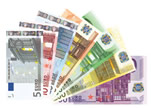Useful facts to help you plan your visit to Ireland
- Festivals
- Public Holidays
- Visas
- Health
- Time
- Electricity
- Weights & Measures
- Money, Banks etc.
- Useful Telephone Numbers
Festivals
There is a HUGE number of events and festivals, both traditional and modern, in Ireland.
Here’s a link to the Irish Tourist Board Search facility
Bank and Public Holidays in Eire (The Republic of Ireland) 2014
- New Year – 1st January (in lieu)
- St Patrick’s Day – March 17
- Good Friday – Not a public holiday
- Easter Monday – April 21
- May Bank Holiday – May 5 – first Monday in May
- June Bank Holiday – June 2 – first Monday in June
- Summer Bank Holiday – August 4 – first Monday in August
- October Bank Holiday – October 27 – Last Monday in October
- Christmas Eve – Although this isn’t a public holiday, some shops and businesses will be closed or closed early on this day. Shops tend to be very busy as people carry out last minute shopping
- Christmas Day – December 25
- St Stephen’s Day – December 26
Bank and Public Holidays in Northern Ireland 2014
- New Year – 1st January
- St Patrick’s Day – March 17
- Good Friday – April 18
- Easter Monday – April 21
- Early May Bank Holiday – May 5
- Spring Bank Holiday – May 26 – Last Monday in May
- Battle of the Boyne – July 14
- Summer Bank Holiday – August 25 – Last Monday in August
- Although Christmas Eve isn’t a public holiday, some shops and businesses will be closed or closed early on this day. Shops tend to be very busy as people carry out last minute shopping
- Christmas Day – December 25
- Boxing Day – December 26
Visas:
For citizens of the EU and most Western countries no visa is required. UK nationals born in Great Britain or Northern Ireland do not require a passport to visit the Republic.
Health risks:
None – unless you include excessive Guinness drinking – no, that’s impossible!
Time:
GMT/UTC
| Dublin |
Electricity:
220V, 50Hz, 2-pin (round) plug 
Weights & measures:
Imperial and Metric
Metric Weights and Measures and their equivalents
Clothing and shoe sizes conversion: US, UK, Europe
Money:
The Euro (€)
- As of January 1, 2002, the euro (€) replaced the national currency of 12 countries within the European Union, including Ireland. You can exchange currency at any bank branch (hours are listed below). Automatic cash machines can be found in most commercial centres.Note: as Northern Ireland is part of the United Kingdom, the pound sterling (£) is in use and denominations are similar to that of the euro.
- Bank Opening Hours Most banks in Ireland are open from Monday to Friday from 10.00 a.m. to 12.30 p.m. and from 1.30 p.m. to 3.00 p.m. One day a week there’s usually extended opening until 5.00 p.m., often Thursdays, although it varies.In Northern Ireland the opening hours are 10.00 a.m. to 3.30 p.m. Monday to Friday. In some places, the banks close for lunch 12.30 p.m. to 1.30 p.m.In both areas of Ireland, banking in small villages can be a hit and miss affair, only on two or three days per week. So the golden rule is: get your cash in the larger centres! ATMs have become more widely available and some post offices can also provide limited cash services.
Check out the current Euro exchange rate with your currency here (close the new window to return): TRAVELSIGNPOSTS CURRENCY CONVERTER

Useful telephone numbers :
- AA Roadside Rescue: 1800 667 788
- Police Tourism Support Services: 1850 661 771
- Emergency Services: 999
- Irish Tourist Board Information: 1850 230 330
- Access for Disabled: 01 668 4181
- Bus Eireann: 01 836 6111
- Irish Rail: 1850 366 222
- Department of Foreign Affairs: 01 478 0822
Other Irelandpages:
Travel to Ireland: a Four Leaf Clover Europe tour to be sure!
When to travel to Ireland for your tour: weather and seasons
Book your sightseeing tours or day-trips in Ireland online
Book your hotel in Ireland online



 Take Better Digital Photos eBook
Take Better Digital Photos eBook Guerrilla Travel Photography eBook
Guerrilla Travel Photography eBook
An update on 2011 would be useful don’t you think for the bank holiday?
Absolutely, Pam, thanks a lot for drawing our attention to it, it just slipped through the net! Correct now, we hope!